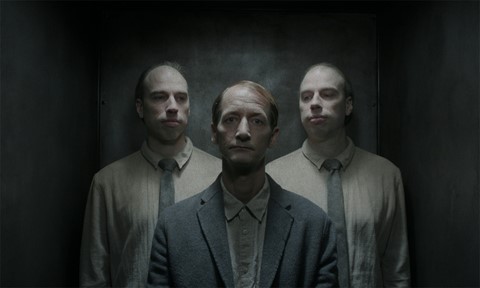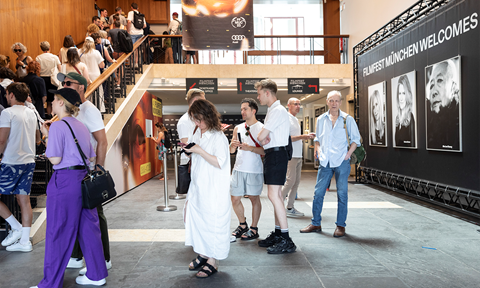A sea of possibilities


The two worn-out men who haunt elderly opera singer Qiu Yu late at night don’t seem at all threatening at first. Even their names, Oxhead and Horseface, sound harmless, but the two turn out to be demons who are there to take Qiu Yu to the afterlife in their rickshaw. Before the journey, Qiu Yu looks back on his career. This is not a brief affair, but an epic endeavor: it’s not only the story of a lice-ridden boy who becomes part of a theater group at an early age and matures into a protagonist, but also the story of China’s more recent history that passes before our eyes. In his first feature film, A NEW OLD PLAY, Qiu Jiongjiong examines his country’s troubled past in a stream of long tracking shots, letting the theatrical flow naturally into the cinematic: visually powerful, imaginative and, for all its political seriousness, cheerfully tongue-in-cheek.

Franziska Stünkel, Jovana Reisinger and RP Kahl
A NEW OLD PLAY is a prime example of what’s in the freshly minted Filmfest competition called CineRebels. Unconventional motion pictures are screened and showcased here, films with little interest in the well-worn paths of storytelling in film, but ones that prefer to break new ground, both aesthetically and in terms of content. The Filmfest’s main sponsor, Audi, is funding the 10,000-euro CineRebels Award. A jury whose three members are also free-spirited and experimental in their work as artists — author-director Jovana Reisinger, writer-director Franziska Stünkel, and director RP Kahl — will choose the winning film at the end of the festival.
The three are truly spoiled for choice among very different films that have in common their will to powerfully challenge the audience’s viewing habits. Like Qiu Jiongjiong, who started out as a visual artist and continues to exhibit his artwork around the world, debbie tucker green has a strong penchant for the theatrical. No wonder: the British director first made a name for herself as a playwright prior to her directorial debut in 2014 with SECOND COMING. In her latest film, EAR FOR EYE, she reworks her play of the same title into a mosaic of scenes about everyday racism and discrimination experienced by British and American people of color. On a minimalist stage set in black, various actors perform texts, many of which are monologues. One of these individuals is Lashana Lynch, who played the new 007 in the latest James Bond film and who contributes one of a number of stirring performances here.
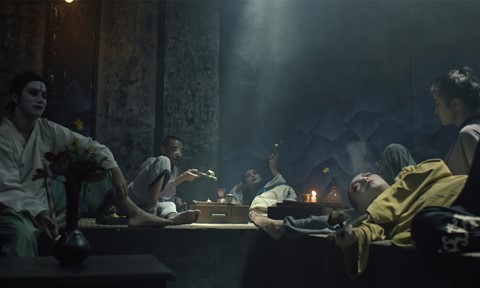
A new old play
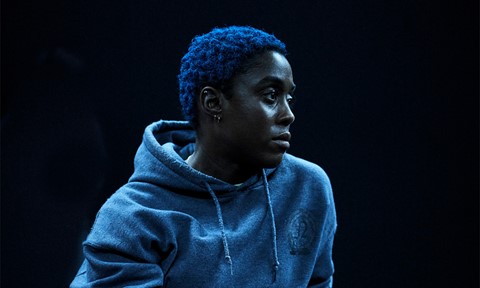
ear for eye
Russian director Kirill Serebrennikov has also mastered the means of expression offered by theater and cinema with a virtuosity that can be marveled at, both in TCHAIKOVSKY’S WIFE (screening in the CineMasters series) and in his masterful PETROV’S FLU, made slightly earlier and well suited to CineRebels. An entire family is infected by the flu virus and in a state of delirium that is presented as fantastically as some of the operas that Serebrennikov stages not only in his native country, but also in German-speaking lands. In PETROV’S FLU he once again reveals himself to be a dissident, mercilessly exposing the brutal militarism in his homeland in the first sequence of the film.
Behind the aesthetic experiments in this section often lies a rebellious spirit, a throbbing political impetus. In COOK F**K KILL, Czech director Mira Fornay denounces domestic violence, choosing the form of a grotesque in which a group of housewives form a kind of Greek chorus, gender identities are in flux, death is not the end of the line, and a frog even speaks at one point. In THE COW WHO SANG A SONG INTO THE FUTURE, the feature-length debut of Chilean director Francisca Alegría, the cows sing, as do a multitude of fish that have washed up on the banks of a polluted river. A dead woman emerges from the water like an eco-prophetess who hardly needs to express herself in words. This film incidentally features the impressive cinematic debut of talented non-binary actor Enzo Ferrada.
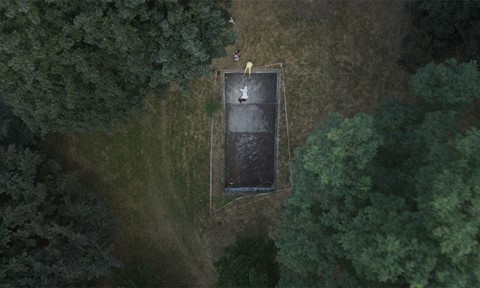
cook f**k kill
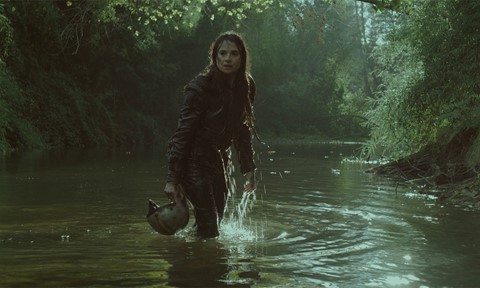
the cow who sang a song into the future
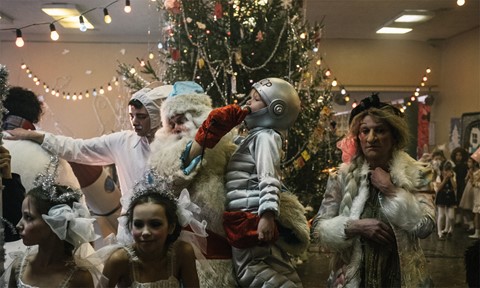
petrov's flu

WILL-O’-THE-WISP
Portuguese filmmaker João Pedro Rodrigues has created a stunning piece of queer art cinema in WILL-O’-THE-WISP. The “amour fou” between two firefighters, one an instructor, the other an apprentice, leads to elaborate tableaux and superbly choreographed dance scenes. The film looks back from the year 2069 to our present time of youthful experimentation — CineRebels also break the boundaries of time and space whenever they need to. So one can only marvel at how the QUANTUM COWBOYS from 1870s Arizona catapult themselves into different dimensions, in a mixture of western, comic book, and a quantum mechanics set in motion by cinematography, quirkily orchestrated by Geoff Marslett.
Mere reality is just too boring to some filmmakers. Danish director Jonas Kærup Hjort takes us on a Kafkaesque journey into a microcosm full of bizarre characters in his feature-length debut, THE PENULTIMATE. And Pietro Marcello, who recently earned several awards for his adaptation of Jack London’s novel Martin Eden, tells an enchanting folk tale in SCARLET, also based on a work of literature, in which a young woman is told by a witch that one day she’ll be carried away from her village on purple sails. Last but definitely not least, GIULIA by Ciro De Caro is a story of emancipation featuring a rebellious protagonist. The title character, played by Rosa Palasciano, who co-wrote the screenplay with director De Caro, has lost her job as a result of the pandemic. As she drifts along, she is joined by two men in an absurd constellation that we’re happy to follow through a hot summer, from the streets of Rome to the beach and into the sea.
Cinema offers a sea of possibilities to those who are able to break free of convention. The directors in this competition boldly dive in.

Quantum cowboys
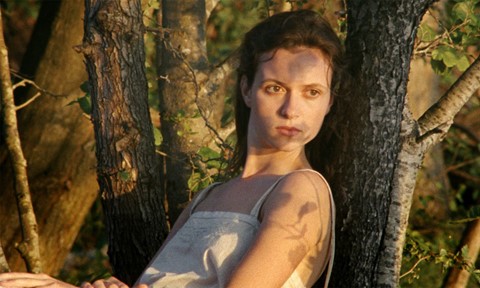
scarlet
